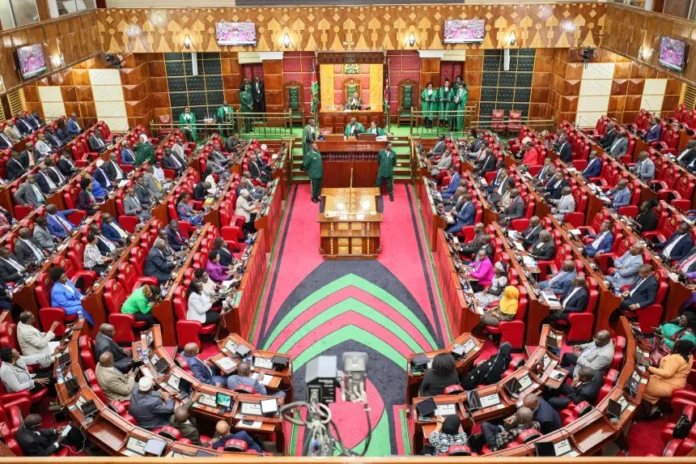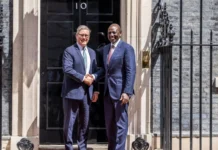Members of Parliament are seeking to rein in Kenya’s growing debt burden through sweeping adjustments in the proposed Ksh 4.2 trillion national budget for the 2025/26 fiscal year.
The Budget and Appropriations Committee, in its revised estimates tabled in the National Assembly on Wednesday afternoon, has slightly trimmed the national budget from last year’s Ksh 4.3 trillion. The move signals a shift toward fiscal consolidation, with a clear focus on reducing borrowing, enhancing development spending, and strengthening key social sectors.
Beginning July 1, 2025, government expenditure will prioritize sustainable development, with Ksh 1.8 trillion allocated to recurrent expenses such as salaries and routine operations, and Ksh 707.8 billion earmarked for development projects including infrastructure and long-term investments.
In total, government spending is capped at Ksh 2.53 trillion, while the Kenya Revenue Authority has been tasked with collecting Ksh 3.3 trillion in revenue, including ordinary collections and Appropriations-in-Aid.
Education takes the lion’s share of the budget at Ksh 701.1 billion—representing 28.1% of the total—followed by Ksh 500.7 billion for energy, infrastructure, and ICT. The health sector is set to receive Ksh 136.8 billion, while agriculture will get Ksh 78 billion, including Ksh 8 billion for the critical fertiliser subsidy programme.
To address Kenya’s ballooning public debt, the committee has proposed allocating Ksh 1.34 trillion toward debt repayment. The Executive is poised to control Ksh 2.497 trillion of the total budget, with Parliament and the Judiciary receiving Ksh 47.9 billion and Ksh 27.7 billion respectively. Additionally, counties are projected to receive an equitable share of Ksh 405.1 billion.
The proposed estimates will be debated by MPs next week ahead of the formal budget presentation scheduled for Thursday.
Written By Rodney Mbua


















